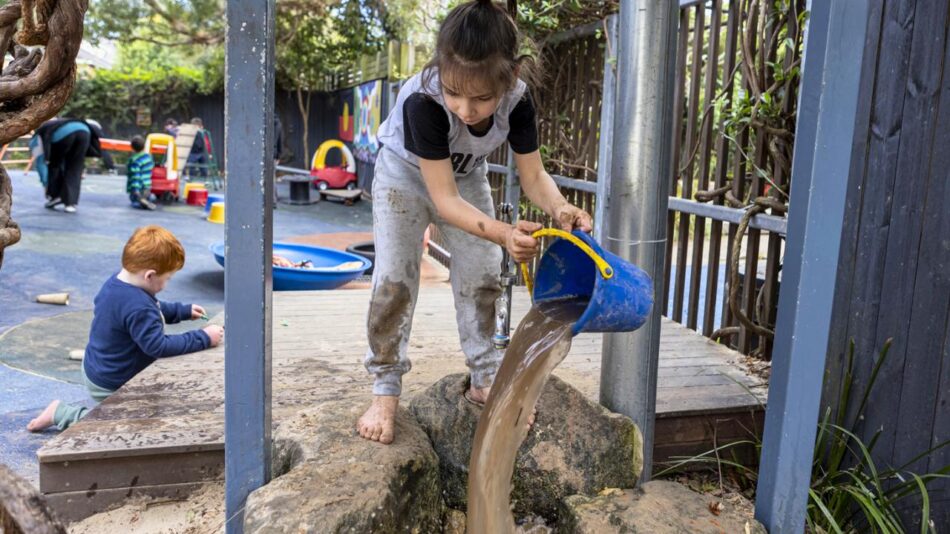Outdoor play is more than just a pastime for young children; it’s a fundamental aspect of their development. In today’s digital age, where screens dominate much of our children’s time, the value of outdoor play cannot be overstated. In this article, we’ll delve into why outdoor play is crucial for early childhood education and explore strategies for incorporating it effectively into learning environments.
1. Introduction to Outdoor Play
Outdoor play encompasses any play or learning activity that takes place outside, whether it’s in a backyard, park, or school playground. It offers children opportunities for exploration, discovery, and physical activity in a natural setting.
2. The Benefits of Outdoor Play in Early Childhood Education
Physical Health
Outdoor play promotes physical fitness and helps prevent childhood obesity. Running, jumping, climbing, and other outdoor activities contribute to the development of motor skills and coordination.
Cognitive Development
Being outdoors stimulates children’s senses and encourages curiosity and problem-solving. Natural settings provide rich learning experiences, fostering creativity and imagination.
Social Skills
Outdoor play encourages collaboration, communication, and teamwork among children. It provides opportunities for social interaction, negotiation, and conflict resolution, essential skills for future success.
Emotional Well-being
Spending time outdoors has been linked to reduced stress and anxiety levels in children. Nature offers a calming effect and promotes a sense of well-being and connectedness to the world around them.
3. The Role of Nature in Outdoor Play
Nature plays a vital role in outdoor play, providing endless opportunities for exploration and learning. Trees, plants, insects, and animals serve as valuable teaching tools, fostering an appreciation for the natural world.
4. Overcoming Challenges to Outdoor Play
Safety Concerns
While outdoor playing offers numerous benefits, safety concerns such as supervision and hazards must be addressed. Proper supervision and safety measures ensure that children can play freely without unnecessary risks.
Weather Conditions
Inclement weather can pose challenges to outdoor play. However, with proper clothing and preparation, children can still enjoy outdoor activities in various weather conditions, learning resilience and adaptability in the process.
Access to Outdoor Spaces
Not all children have equal access to outdoor spaces for play. Schools and communities must prioritize creating safe and accessible outdoor environments to ensure all children have the opportunity to benefit from outdoor play.
5. Strategies to Promote Outdoor Play in Early Childhood Education Settings
Creating Outdoor Learning Environments
Designing outdoor spaces that facilitate play and learning is essential. Incorporating natural elements, such as gardens and sensory areas, enhances the outdoor experience for children.
Incorporating Nature-Based Activities
Integrating nature-based activities into the curriculum encourages children to explore and engage with the natural world. Activities such as nature walks, gardening, and outdoor art promote hands-on learning and environmental stewardship.
Educating Parents and Caregivers
Educating parents and caregivers about the importance of outdoor playing is crucial. Providing resources and tips for incorporating outdoor activities into daily routines helps reinforce the value of outdoor play beyond the school setting.
6. The Impact of Technology on Outdoor Play
In today’s digital age, children are spending more time indoors with screens, limiting their exposure to outdoor play. Educators and parents must strike a balance between technology use and outdoor play to ensure children’s holistic development.
7. Conclusion
Outdoor play is essential for the holistic development of young children. By promoting physical health, cognitive development, social skills, and emotional well-being, outdoor play lays the foundation for lifelong learning and success. Educators, parents, and communities must work together to prioritize outdoor play and create environments that nurture children’s connection to nature.
FAQs
- Why outdoor playing is important for early childhood education?
- Outdoor play promotes physical health, cognitive development, social skills, and emotional well-being in young children.
- How can schools promote outdoor playing?
- Schools can create outdoor learning environments, incorporate nature-based activities, and educate parents about the benefits of outdoor playing.
- What are some challenges to outdoor play?
- Safety concerns, weather conditions, and access to outdoor spaces are common challenges to outdoor play.
- How can parents encourage outdoor play at home?
- Parents can provide opportunities for outdoor playing, such as backyard games, nature walks, and gardening activities.
- What is the role of nature in outdoor playing?
- Nature serves as a valuable learning environment, providing opportunities for exploration, discovery, and connection to the natural world.
Also read: What to Look for When Choosing a School for Your Child

